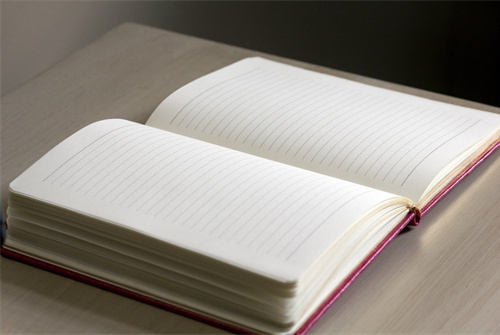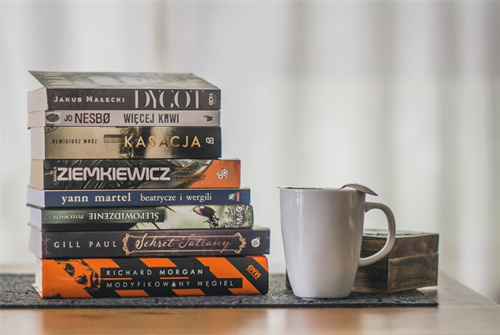詩歌欣賞中英互譯
詩歌欣賞:TheBight
Atlowtidelikethishowsheerthewateris.
White,crumblingribsofmarlprotrudeandglare
andtheboatsaredry,thepilingsdryasmatches,
Absorbing,ratherthanbeingabsorbed,
thewaterinthebightdoesn'twetanything,
thecolorofthegasflameturnedaslowaspossible.
Onecansmellitturningtogas;ifonewereBaudelaire
onecouldprobablyhearitturningtomarimbamusic.
Thelittleocherdredgeatworkofftheendofthedock
alreadyplaysthedryperfectlyoff-beatclaves.
Thebirdsareoutsize.Pelicanscrash
intothispeculiargasunnecessarilyhard.
itseemstome,likepickaxes,
rarelycomingupwithanythingtoshowforit,
andgoingoffwithhumorouselbowings,
Black-and-whiteman-of-warbirdssoar
onimpalpabledrafts
andopentheirtailslikescissorsonthecurves
ortensethemlikewishbones,tilltheytremble.
Thefrowsyspongeboatskeepcomingin
withtheobligingairofretrievers,
bristlingwithjackstrawgaffsandhooks
anddecoratedwithbobblesofsponges.
Thereisafenceofchickenwirealongthedock
where,glintinglikelittleplowshares,
theblue-graysharktailsarehunguptodry
fortheChinese-restauranttrade.
Someofthelittlewhiteboatsarestillpiledup
againsteachother,orlieontheirsides,stovein,
andnotyetsalvaged,iftheyeverwillbe,fromthelastbadstorm.
liketorn-open,unansweredletters.
thebightislitteredwitholdcorrespondences.
Click.Click.Goesthedredge,
andbringsupadrippingjawfulofmarl.
Alltheuntidyactivitycontinues,
awfulbutcheerful.
海潮退到這樣的時候,水便分外清澈了。
白色的石灰泥灘,層層露出水來,浪紋斑駁,閃耀亮眼。
條條小船,曬得干干的;根根木樁,則干得像火柴棒。
吸收而非被吸收,
海灣里的水弄不濕任何東西,
而且呈現出一種瓦斯火開至最低時的顏色。
你可以聞到那海水正轉化成瓦斯;假如你是波特萊爾的話
你說不定可以聽到那海水正轉化成馬林巴木琴的聲音。
而碼頭尾端,一個褐色小型撈網正在那里撈著
一直在那里以絕對冷硬的調子,打著雙節棒,伴奏著。
水鳥都是特大號的。鵜鶘嘩啦沖
入這一泓奇異的瓦斯之中,真是小題大作,
這景象對我來說,有點像鶴嘴鋤,
一鋤下去,拉回來看看,什么也沒有,
于是只好游到一邊,樣子滑稽的擠入鵜鶘堆里去了。
黑白相間的軍艦鳥翱翔在
捉摸不定的氣流里
尾巴張開,如剪刀彎彎裁過
尾巴緊繃,如叉骨繃然顫動。
腥臭的海綿船不斷的開了進來
以一種獵狗銜回東西般的殷勤姿態,
上面豎立著稻草人般的魚叉魚鉤
裝飾著垂懸吊幌的海綿。
沿著碼頭,有一排方格鐵絲網墻
上面,掛著閃閃發光犁刀般
灰藍鯊的尾巴,一條條的,在那里風干,
準備賣給中國餐館。
一些白色的小船,仍然相互靠在一起
堆著放,或側著放,船身破裂,
還沒修好(要是將來真還會去修的話),都是上回暴風弄壞的,
像一封封拆開而沒有回復的信。
這小海灣內到處都丟著廢棄的信件。
卡啦卡啦,撈網上下撈著,
撈上來滴滴答答一大堆石灰泥。
所有亂七八糟的事都在進行著,糟是糟透了,不過卻滿愉快的。
詩歌欣賞:TheArrowAndTheSong箭與歌
(1)
Ishotanarrowintheair,我向空中射了一箭,
Itfelltoearth,Iknewnotwhere;它已落到地面,我不知道其去向;
Forsoswiftlyitflew,thesight因它飛得如此地快速
Couldnotfollowitinitsflight.視力無法跟得上它的飛馳。
(2)
Ibreathedasongintotheair,我向空中輕歌一曲,
Itfelltoearth,Iknewnotwhere;它已落地而停,我不知其去向;
Forwhohassightsokeenandstrong,誰有這么敏銳的視力,
Thatitcanfollowtheflightofsong?能跟得上歌聲的'飛馳?
(3)
Long,longafterward,inanoak很久,很久以后,在一棵橡樹上,
Ifoundthearrowstillunbroke;我發現它依然完好無損;
Andthesong,frombeginningtoend,而這首歌,從頭到尾,
Ifoundagainintheheartofafriend.我發現又深印在一位友人的心上。
byH.W.Longfellow
詩歌欣賞:Pippa'sSong琵琶之歌
Theyear'satthespring,一年之計在于春,
Andday'satthemorn;一日之計在于晨;
Morning'satseven;一晨之計在于七時;
Thehillside'sdew-pearled;山坡上裝點著珍珠般的露水珠露;
thelark'sonthewing;云雀在風中飛躍;
Thesnail'sonthethorn;山壚上蝸牛爬行
God'sinhisheaven---神在天堂司宇宙
All'srightwiththeworld!世上一切都太平!
byRobertBrowning,1812-1889
詩歌欣賞:TheFountain噴泉
(1)
Intothesunshine,陽光下,
Fullofthelight,充滿著光輝,
Leapingandflashing跳躍著、閃爍著
Frommorntillnight!從日出到日落!
(2)
Intothemoonlight,月光下,
Whiterthansnow,比雪更白,
Wavingsoflower-like當風吹拂時,
Whenthewindsblow!波動有如花!
(3)
Intothestarlight,月光下,
Rushinginspray,急濺起泡沫,
Happyatmidnight,午夜里歡樂,
Happybyday.白天里雀躍。
(4)
Everinmotion,永遠跳動著,
Blithesomeandcheery,愉快又歡欣,
Stillclimbingheavenward,永遠向天高攀,
Neveraweary;從不疲憊;
(5)
Gladofallweathers,適應各種天氣,
Stillseemingbest,永遠活力充沛,
Upwardofdownward上上下下
Motionthyrest;是運動也是休息;
(6)
Fullofanature充滿著活力
Nothingcantame,不受拘束,
Changedeverymoment時時有變化,
Everthesame.永遠一樣。
(7)
Ceaselessaspiring,不斷升高
Ceaselesscontent,不斷滿足
Darknessorsunshine黑暗里,陽光下
Thyelement;都是你活動范圍;
(8)
Gloriousfountain!輝煌耀目的噴泉!
Letmyheartbe但愿我心如你般
Fresh,changeful,constant,清新,多變,堅定
Upwardlikethee!永遠向上!
byJamesR.Lowell,1819-1891
詩歌欣賞:InfantJoy嬰兒的喜悅
(1)
'Ihavenoname;?我無姓名
Iambuttwodaysold.'我只兩天大。?
WhatshallIcallthee?我將如何來稱呼你呢?
'Ihappyam,?我很快樂,
Joyismyname.'喜悅就是我的名字。?
Sweetjoybefallthee!愿甜蜜的快樂降臨你身上!
(2)
PrettyJoy!漂亮的喜悅!
SweetJoy,buttwodaysold.甜蜜的喜悅,才兩天大。
SweetJoyIcallthee:我稱你為甜蜜的喜悅:
Thoudostsmile,你就微笑,
Isingthewhile,當我唱歌的當兒,
Sweetjoybefallthee!愿甜蜜的快樂降臨你身上!
byWilliamBlake
詩歌欣賞:渡沙渚
ByAlfredTennyson
Sunsetandeveningstar,
Andoneclearcallforme!
Andmaytherebenomoaningofthebar,
WhenIputouttosea,
Butsuchatideasmovingseemsasleep,
Toofullforsoundandfoam,
WhenThatwhichdrewformouttheboundlessdeep
Turnsagainhome.
Twilightandeveningbell,
Andafterthatthedark!
Andmaytherebenosadnessoffarewell,
WhenIembark;
ForthoughfromoutourbourneofTimeandPlace
Thefloodmaybearmefar,
IhopetoseemyPilotfacetoface
WhenIhavecrostthebar.
渡沙渚
阿爾費雷德?丁尼生
夕陽下,閃疏星,
召喚一聲清朗!
愿沙渚寧靜,
我將出海遠航;
潮汐如夢幻,
濤聲似止,浪花息;
大海深處涌來,
又悄然退卻。
暮靄鐘鳴,
黑夜將籠罩!
愿訣別無悲聲,
登舟起錨;
千古洪流,時空無限,
滔滔載我至遠方;
渡沙渚一線,
泰然見領航。
詩歌欣賞:MeetingatNight中英互譯
MeetingatNight
Thegrayseaandthelongblackland;
Andtheyellowhalf-moonlargeandlow;
Andthestartledlittlewavesthatleap
Infieryringletsfromtheirsleep,
AsIgainthecovewithpushingprow,
Andquenchitsspeedi’theslushysand.
Thenamileofwarmsea-scentedbeach
Threefieldstocrosstillafarmappears;
Atapatthepane,thequicksharpscratch
Andbluespurtofalightedmatch,
Andavoicelessloud,thro’itsjoysandfears,
Thanthetwoheartsbeatingeachtoeach!
夜會
長岸黑黝黝,
大海灰濛濛;
半月黃又大,
遠遠掛低空。
我駕小船來,
疾馳多奮勇;
船頭驚細浪,
環環映月紅。
終于進港灣,
船滯淤沙中;
棄船登沙岸,
海風暖融融。
心頭情切切,
腳步快如風;
沙灘一片片,
田野一壟壟。
心頭情切切,
腳步快如風;
眼前現農舍,
舉手敲窗櫺。
火柴輕輕摖,
脆響急匆匆;
只見藍光閃,
砰然兩心動。
但聽輕聲喚,
驚喜又惶恐;
燈照心里亮,
情比夜色濃。
羅伯特·布朗寧(RobertBrowning1812—1889)英國詩人詩的.標題為“夜會”,可是通篇都只是描述前去赴約的過程,直到最后也未直接顯示“會面”的鏡頭。但詩的末行“thetwoheartsbeatingeachtoeach(兩顆心相對著跳動)”這朦朧的一筆卻間接地點明了夜會的高潮。譯作結尾借景言情,與原作異曲同工。
守望中的媽媽詩歌欣賞中英互譯
Shealwaysleanedtowatchforus.
Anxiousifwewerelate,
Inwinterbythewindow,
Insummerbythegate;
Andthoughwemockedhertenderly,
Whohadsuchfoonichcare,
Thelongwayhomewouldseemmoresafe,
Becauseshewaitedthere.
Herthoughtswereallsofullofus
Shenevercouldforget!
AndsoIthinkthatwheresheis
Shemustbewatchingyet,
Waitingtillwecomehometoher
Anxiousifwearelate______
WatchingfromHeaven'swindow,
LeaningfromHeaven'sgate.
守望中的'媽媽
她總在那兒把我們守望,
我們晚歸會使她發慌,
冬天里守在窗前
夏日里靠在門前。
我們曾善意地將她嘲弄
這般呵護似乎超出正常
可漫長的歸途卻平添了安全
因為有她在殷切地翹望。
她心里盛下的卻是我們,
卻不曾有一刻的遺忘!
我欣然感到她的那番期待
無論她身處什么地方。
守望,一直到我們遠回到她身旁
若晚歸,會使她發慌,
守望,在天庭之窗,
佇立,在天庭的門廊。
中英互譯比賽原文
英譯漢競賽原文:
ThePosteverythingGeneration
Ineverexpectedtogainanynewinsightintothenatureofmygeneration,orthechanginglandscapeofAmericancolleges,inLitTheory.LitTheoryissupposedtobetheclasswhereyousitatthebackoftheroomwitheveryotherjadedsophomorewearingskinnyjeans,thick-framedglasses,anironictee-shirtandover-sizedretroheadphones,justwaitingforlecturetobeoversoyoucanlightupaTurkishGoldandwalktolunchwhilelisteningtoWilco.That’sprettymuchthewayIspentthecourse,too:throughstructuralism,formalism,gendertheory,andpost-colonialism,IwasfartoobusyshufflingthroughmyIpodtoseewhatthepatriarchalworldorderofcapitalistoppressionhadtodowithEthanFrome.Butwhenwebegantostudypostmodernism,somethingstruckachordwithmeandmademesitupandlookanewattheseeminglyblasécollege-agedliteratiofwhichIwassoself-consciouslyone.
Accordingtomytextbook,theproblemwithdefiningpostmodernismisthatit’simpossible.Thedifficultyisthatitisso...post.Itdefinesitselfsonegativelyagainstwhatcamebeforeit–naturalism,romanticismandthewildrevolutionofmodernism–thatit’ssometimeshardtoseewhatitactuallyis.Itdeniesthatanythingcanbeexplainedneatlyorevenatall.Itisparodic,detached,strange,andsometimesmenacingtotraditionalistswhodonotunderstandit.Althoughitaroseinthepost-warwest(thetermwascoinedin1949),thegenerationthathaswitnesseditsascendancehasyettocomeupwithanexplanationofwhatpostmodernattitudesmeanforthefutureofcultureorsociety.Thesubjectintriguedmebecause,inaclassotherwiseconsumedbydead-lettertheories,postmodernismremainedanopenbook,temptingtotheyoungandcurious.Butitalsointriguedmebecausethequestionofwhatpostmodernism–whatamovementsopost-everything,soreticenttodefineitself–isspoketoalargerquestionaboutthepoliticalandpopularcultureoftoday,oftheotherjadedsophomoressittingaroundmewhohadgrownupinapostmodernworld.
Inmanyways,asacollege-agedgeneration,wearealsoextremelypost:post-ColdWar,post-industrial,post-babyboom,post-9/【第11句】:..atonepointinhisfamousessay,“Postmodernism,ortheCulturalLogicofLateCapitalism,”literarycriticFredericJamesonevencallsus“post-literate.”Weareagenerationthatisridingonthetail-endofacenturyofwarandrevolutionthattoppledcivilizations,overturnedrepressivesocialorders,andleftuswithmoreprivilegeandopportunitythananyothersocietyinhistory.Ourscouldbeaneratoaccomplishanything.
Andyetdowetaketothestreetsandtheairwavesandsay“hereweare,andthisiswhatwedemand”?DoweplantourflagofyouthfulrebelliononthemallinWashingtonandsay“weare
notleavinguntilweseechange!Oureyeshavebeenopenedbyoureducationandourconceptionofwhatispossiblehasbeenexpandedbyourprivilegeandwedemandabetterworldbecauseitisourright”?Itwouldseemwedotheopposite.Wegotowarwithoutsomuchasquestioningtherationale,wesignawayourcivilliberties,wesaynothingwhentheSupremeCourtusesBrownv.BoardofEducationtooutlawdesegregation,andwesitbacktowatchthecarnageontheeveningnews.
Oncampus,wesignpetitions,joinorganizations,putournamesonmailinglists,makesmall-moneycontributions,volunteerasparehourtotutor,andsportanentirewardrobe’sworthofLiveStrongbraceletsadvertisingourmoderatelypricedoppositiontoeverythingfrombreastcancertoglobalwarming.Butwhatdowereallystandfor?Likeatruepostmoderngenerationwerefusetoweavetogetheranoverarchingnarrativetoourownpoliticalconsciousness,topresentacastofinspirationalorrevolutionarycharactersonourpublicstage,ortodefineaspecificphilosophy.Weareastoryseeminglywithoutdirectionortheme,structureormeaning–agenerationdefinednegativelyagainstwhatcamebeforeus.WhenAlGoreoncesaid“It’sthecombinationofnarcissismandnihilismthatreallydefinespostmodernism,”hemightaswellhavebeenechoinghisentiregeneration’scritiqueofourown.Weareagenerationforwhomevenrevolutionseemstrite,andthereforeasfairatargetforblandimitationasanythingelse.WearethegenerationoftheCheGeuveratee-shirt.
Jamesoncallsit“Pastiche”–“thewearingofalinguisticmask,speechinadeadlanguage.”Inliterature,thismeansanauthorspeakinginastylethatisnothisown–borrowingavoiceandcontinuingtouseituntilthewordsloseallmeaningandthechaosthatisreallifesetsin.Itisanimitationofanimitation,somethingthathasbeenre-envisionedsomanytimestheoriginalmodelisnolongerrelevantorrecognizable.Itismass-producedindividualism,anticipatedrevolution.Itiswhypostmodernismlackscohesion,whyitseemstolackpurposeordirection.Forus,thepost-everythinggeneration,pasticheistheuseandreuseoftheoldclichésofsocialchangeandmoraloutrage–aperfunctoryrebelliousnessthathasculminatedintheageofrapidlymultiplyingnon-profitsandrelieffunds.Weliveourlivesinmasksandspeakourmindsinadeadlanguage–thelanguageofasocietythatexpectsustoagitatebecausethat’swhatyoungpeopledo.Buthowdowerebelagainstagenerationthatisexpecting,anticipating,nostalgicforrevolution?
Howdowerebelagainstparentsthatsometimesseemtowantrevolutionmorethanwedo?Wedon’t.Werebelbynotrebelling.Wewearthedefunctmasksofprotestandmoraloutrage,buttherealenergyincampusactivismisontheinternet,withwebsiteslike.Itisintherapidlydevelopingabilitytocommunicateideasandfrustrationinchatroomsinsteadofonthestreets,andchannelthemintonationwideprojectsstrivingearnestlyformoderateandpeacefulchange:wearethegenerationofStudentsTakingActionNowDarfur;wearetheRock
theVotegeneration;thegenerationofletter-writingcampaignsandpublicinterestlobbies;thealternativeenergygeneration.
CollegeasAmericaonceknewit–asanincubatorofradicalsocialchange–iscomingtoanend.Toourgenerationtheword“radicalism”evokesimagesofalQaeda,nottheWeathermen.“Campustakeover”soundsmorelikeVirginiaTechin2007thanColumbiaUniversityin19【第68句】:Suchphrasesareadeadlanguagetous.Theyarevocabularyfromanothererathatdoesnotreflecttherealitiesoftoday.However,thetechnologicalrevolution,therevolution,therevolutionoftheorganizationkid,isjustasrealandjustasprofoundastherevolutionofthe1960’s–itisjustnotasvisible.Itisaworkinprogress,butitisthere.Perhapswhenourparentsfinallystoppointingoutthethingsthatwearenot,thestoriesthatwedonotwrite,theywillseethethreadsofournarrativebegintocometogether;theywillseethatbehindourpastiche,thepostgenerationspeaksinalanguagethatdoesmakesense.Wearewritingarevolution.Wearejustputtingitinourownwords.
漢譯英競賽原文:
保護古村落就是保護“根性文化”
傳統村落是指擁有物質形態和非物質形態文化遺產,具有較高的歷史、文化、科學、藝術、社會、經濟價值的村落。但近年來,隨著城鎮化快速推進,以傳統村落為代表的傳統文化正在淡化,乃至消失。對傳統村落歷史建筑進行保護性搶救,并對傳統街巷和周邊環境進行整治,可防止傳統村落無人化、空心化。
古村落是歷史文化遺存的特有形式之一,是地方歷史經濟發展水平的象征和民俗文化的集中代表。古村落文化是傳統文化的重要組成部分,它直接體現出中華姓氏的血緣文化、聚族文化、倫理觀念、祖宗崇拜、典章制度、堪輿風水、建筑藝術、地域特色等。
古村落是傳統耕讀文化和農業經濟的標志,在當前城市化巨大浪潮的`沖擊之下,古村落不可避免地被急功近利所覬覦和包圍。之所以強調保護古村落,不是為了復古,更不是為了倡導過去的宗族居住生活模式,而是為了了解和保留一種久遠的文明傳統,最終是為了體現現代人的一份歷史文化責任感。
古村落與其說是老建筑,倒不如說是一座座承載了歷史變遷的活建筑文化遺產,任憑世事變遷,斗轉星移,古村落依然巋然不動,用無比頑強的生命力向人們訴說著村落的滄桑變遷,盡管曾經酷暑寒冬,風雪雨霜,但是古老的身軀依然支撐著生命的張力,和生生不息的人并肩生存,從這點上說,滄桑的古村落也是一種無形的精神安慰。在城市進入現代化的今天,對待古村落的態度也就是我們對待文化的態度。一座古村落的被改造或者消失,也許很多人沒有感覺出丟了什么,但是,歷史遺產少了一座古老的古村落,就少了些歷史文化痕跡,就少了對歷史文化的觸摸感,也就很容易遺忘歷史,遺忘了歷史,很難談文化延承,同時失去的還有附加在古村落上的文化魂靈。看一個地方有沒有文化底蘊,有
沒有文化割裂感,不僅要看輝煌燦爛的文物遺留,還可以從一座座古村落上感受出來,從古村落高大的廳堂、精致的雕飾、上等的用材,古樸渾厚、巧奪天工的建筑造型上感受出來。臺灣作家龍應臺曾寫過一篇和大樹保護有關的文章:一條計劃中的道路要穿過一位老人家門口,要砍倒一株老樟樹。樹小的時候,老人家還是孩子;現在,她人老了,樹也大了。如果樹能留下,老太太愿意把自己的一部分房子捐出來,經過協調,工程部門同意留樹。龍應臺感慨道:“人們承認了:樹,才是一個地方里真正的原住民,驅趕原住民,你是要三思而行的;不得不挪動時,你是要深刻道歉的。”對于古村落,不得不改造和推倒時,同樣需要三思而行。
上一篇:青春期叛逆的臺詞集錦200條
下一篇:返回列表






